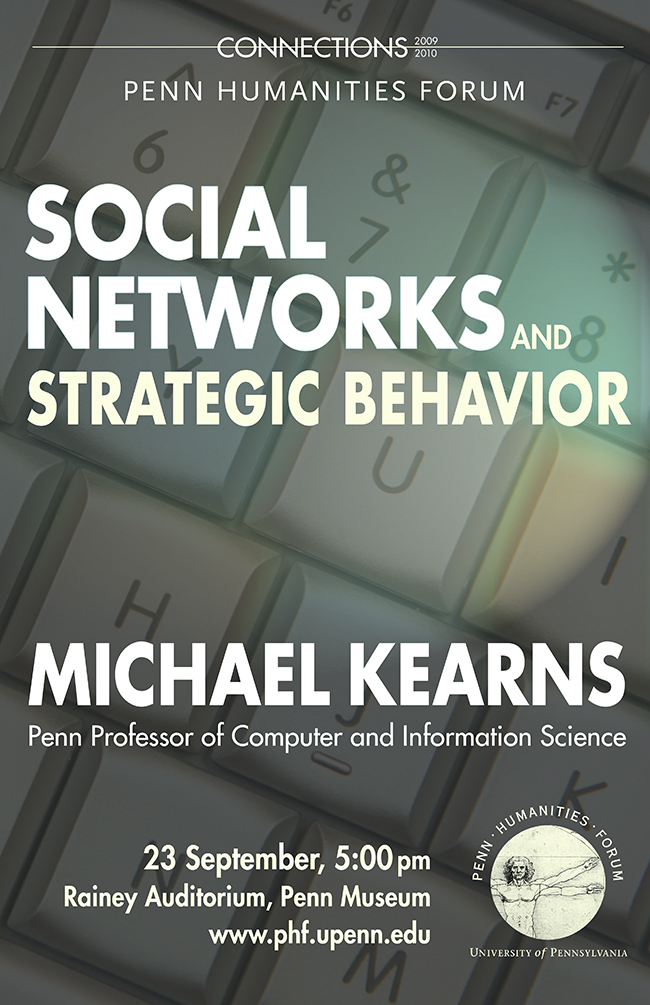The Internet has vastly amplified our opportunities for networking of all kinds, and researchers have been hard at work describing the properties of these new social structures. But whether it is a matter of influencing an election or finding the right mate, how does our behavior affect others within these structures? How does a person’s position in a social network, for example, determine her bargaining power? Penn computer scientist Michael Kearns explores the strategies we deploy in modern technological and social networks.
Michael Kearns is a computer scientist and expert on machine learning and game theory at the University of Pennsylvania, who is renown for his work on the connections between networks and human behavior in settings as diverse as voting, the vulnerability of the Internet, and terrorism. He is Professor of Computer and Information Science in the School of Engineering, where he is the National Center Chair in Resource Management and Technology. He also holds secondary appointments in The Wharton School's Operations & Information Management and Statistics departments, and until July 2006 was the co-director of Penn's interdisciplinary Institute for Research in Cognitive Science.
In other work, he recently led a quantitative research team at Bank of America in New York, developing proprietary and algorithmic trading strategies, and served as consultant and head of a quantitative team within the Equity Strategies group of Lehman Brothers. In the 1990s, he worked in basic artificial intelligence and machine learning at AT&T and Bell Labs. Prof. Kearns holds an undergraduate degree from the University of California at Berkeley in Math and Computer Science and a Ph.D. in Computer Science from Harvard University.
Professor of Computer and Information Science, University of Pennsylvania



